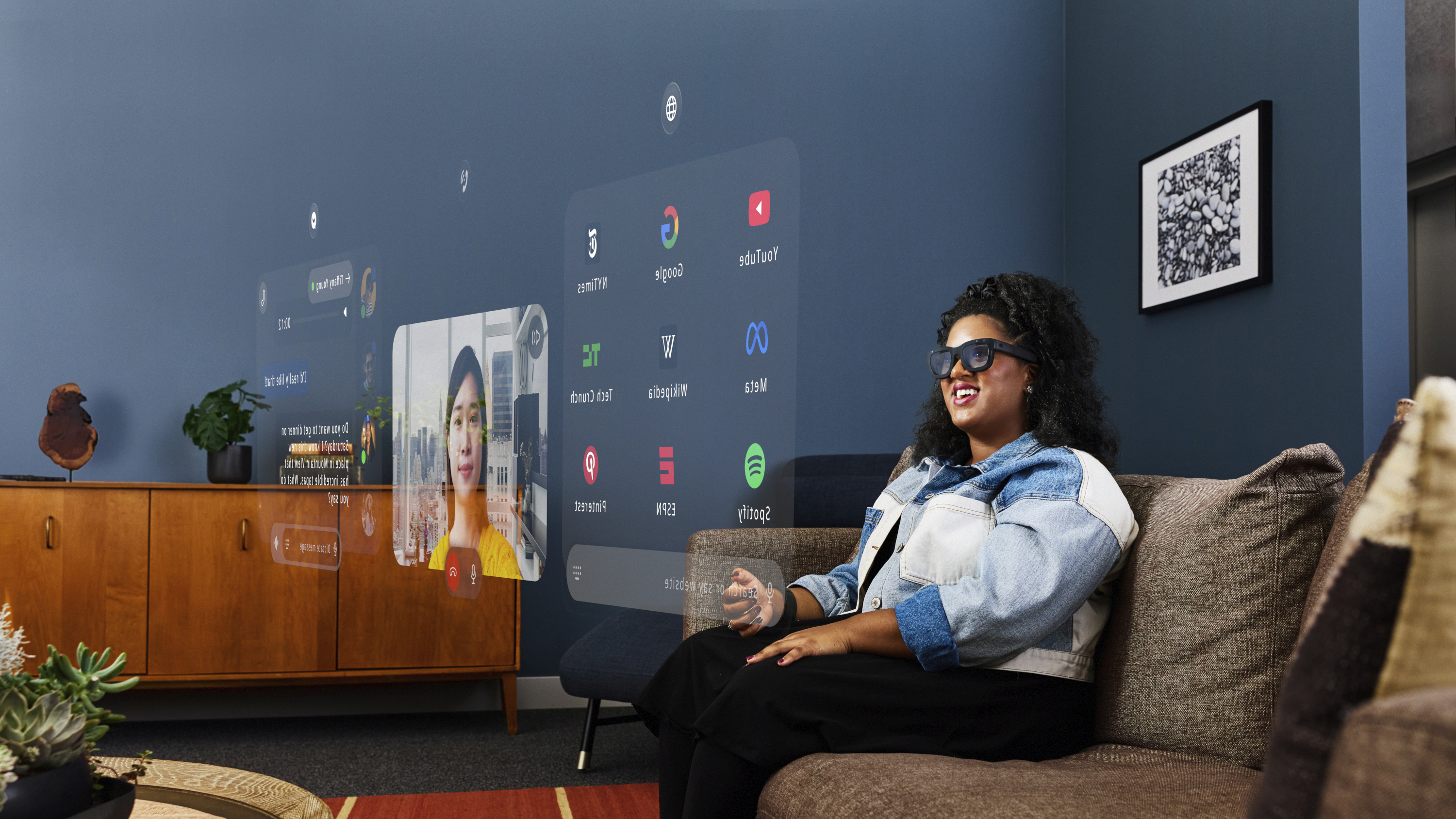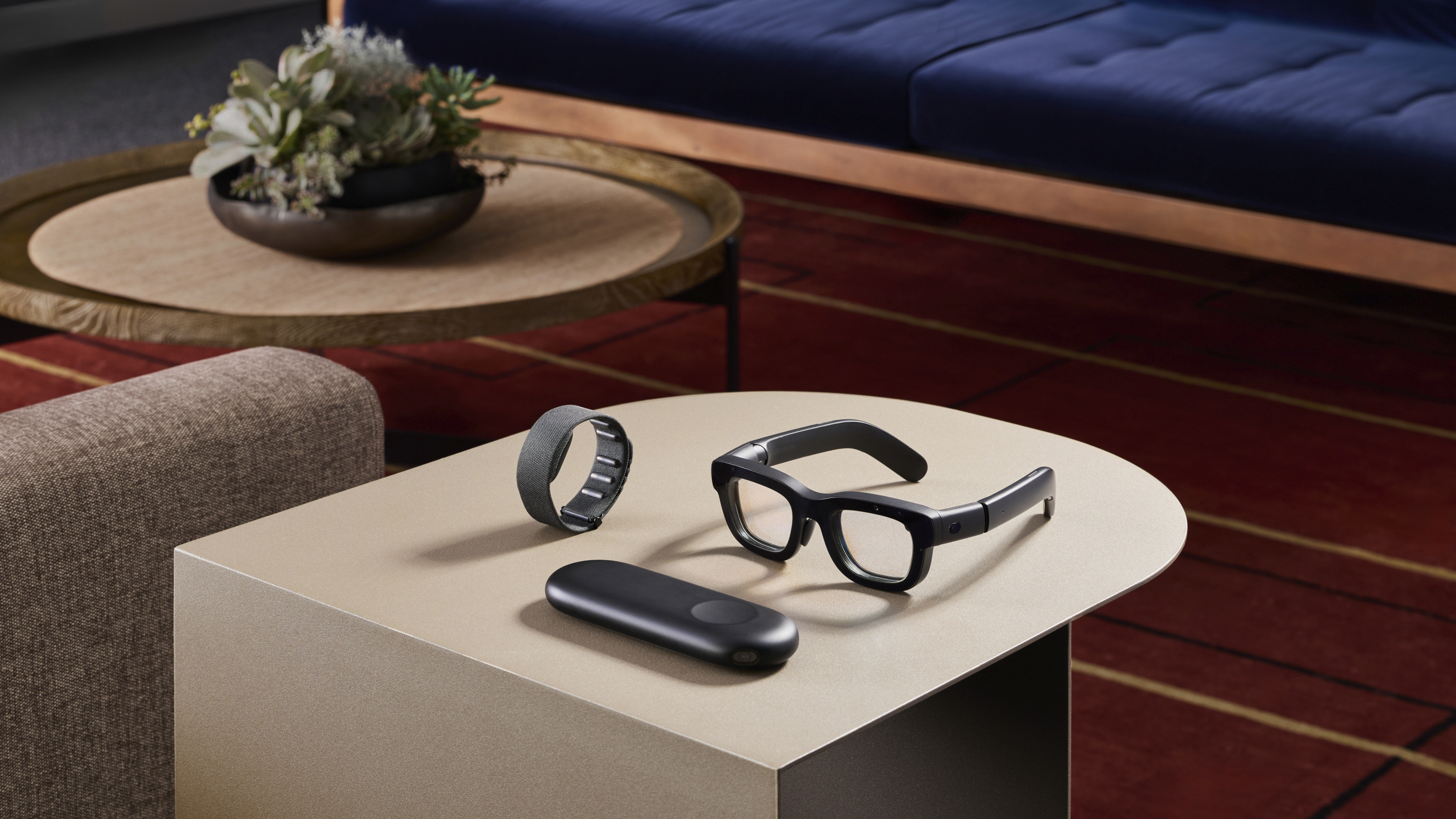Meta Orion is the world’s first holographic AR glasses with a neural interface — here’s what they can do
A prototype of full holographic AR

Mark Zuckerberg took to the stage at Meta Connect 2024 and announced all kinds of new goodies. The Quest 3S started the show, bringing affordable VR and mixed reality to the market. However, Project Orion stole the show with its insane augmented reality technology, although they're still a prototype.
Prototype or not, they sound like game-changers. So much so that Zuckerberg described them as being "like a time machine." No, they're not going to move you through time, but they feel like something out of another time, or at least, that's the pitch.

Despite being incredibly powerful, the glasses are designed to keep themselves cool. That's because the lenses aren't glass or plastic. They are made of silicon carbide. This material is supposed to offer more durability, be lighter, and have an ultrahigh index of refraction for the projectors.
Another key factor of Project Orion is that the lenses are clear — you can still see the facial expressions of someone wearing them. This is big if you don't want to walk around with sunglasses all day.
@tomsguide ♬ original sound Tom’s Guide
Do they look a little chunky compared to regular glasses? Yes. Does that matter? That remains to be seen, but if the demo accurately represented what using these glasses could be like, it might just be worth wearing some thicker frames. And while they're big, they also have the largest field of view in the smallest AR glasses available yet.

Apparently, it wasn't easy for Meta, with Zuckerberg saying they've spent more than a decade working on them. "Nailing the form factor, delivering holographic displays, developing compelling AR experiences, creating new human-computer interaction (HCI) paradigms – and doing it all in one cohesive product – is one of the most difficult challenges our industry has ever faced," said Meta in a blog post.
The Meta Orion can leverage eye and hand tracking, but it also uses a neural interface, which is accomplished via a wrist-worn accessory called an EMG wristband. And there's a separate battery puck, too. While Zuck and company didn't spend a lot of time talking about the neural link, he did pause for some serious dramatic effect when he mentioned it. Basically, it looks like certain wrist movements trigger things within the interface, allowing you to control the devices without talking or making giant hand movements.
Sign up to get the BEST of Tom's Guide direct to your inbox.
Get instant access to breaking news, the hottest reviews, great deals and helpful tips.
Zuckerberg says that Meta is treating Orion as a developer kit and will working in the background to slim down the design, bring the price down and work with others on applications. But it looks very promising.
More from Tom's Guide
- Meta Quest 3 review
- Meta Connect 2024 live — Meta Quest 3S, Meta AI Voice, new AR glasses and more
- I just did my first Apple Vision Pro Zoom call using my Persona — and yikes!

Dave LeClair is the Senior News Editor for Tom's Guide, keeping his finger on the pulse of all things technology. He loves taking the complicated happenings in the tech world and explaining why they matter. Whether Apple is announcing the next big thing in the mobile space or a small startup advancing generative AI, Dave will apply his experience to help you figure out what's happening and why it's relevant to your life.










